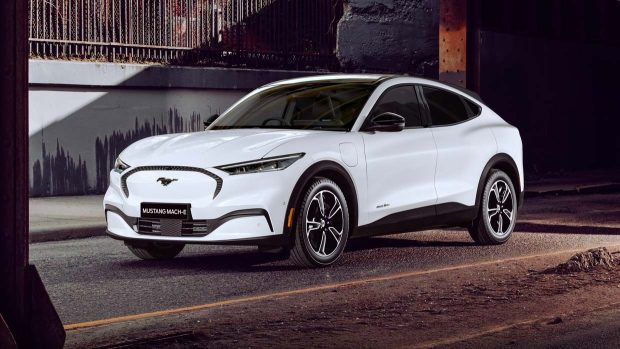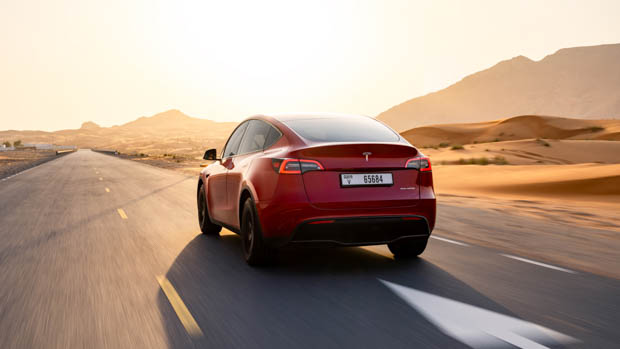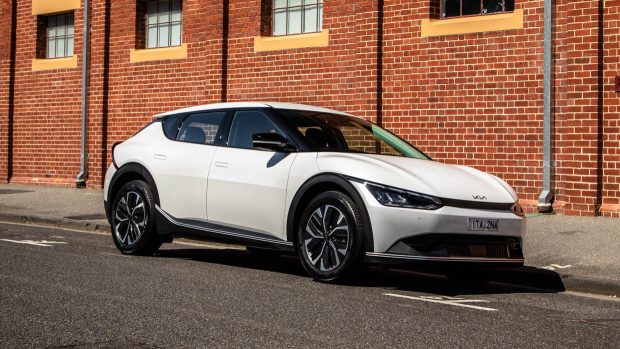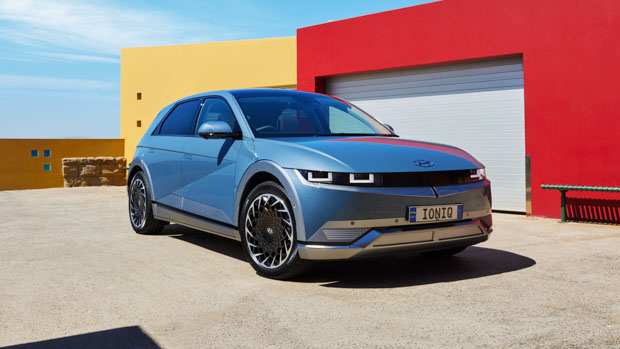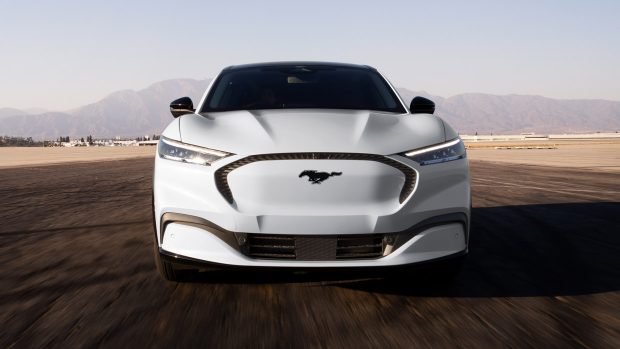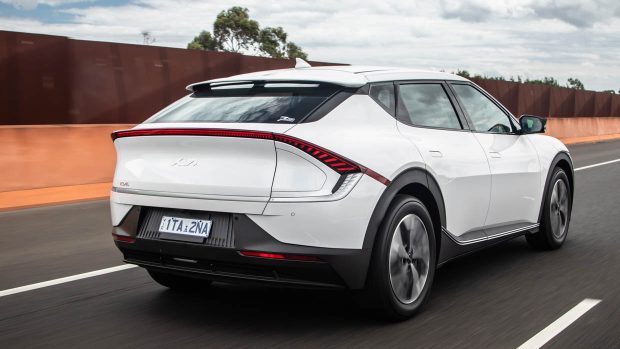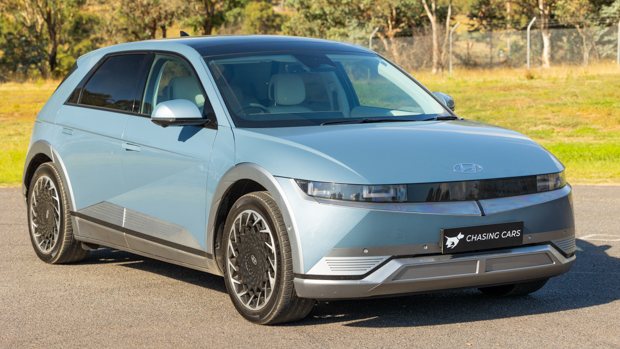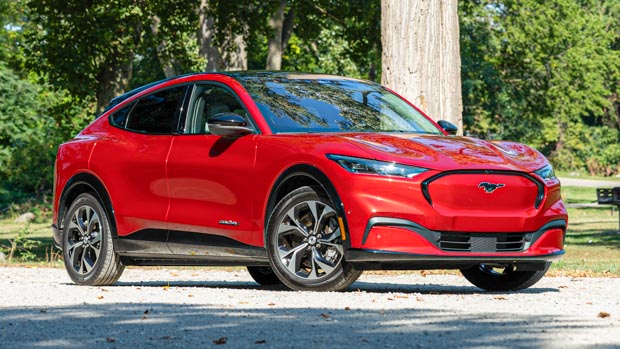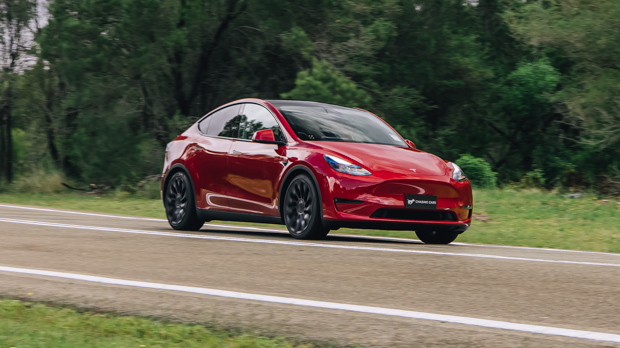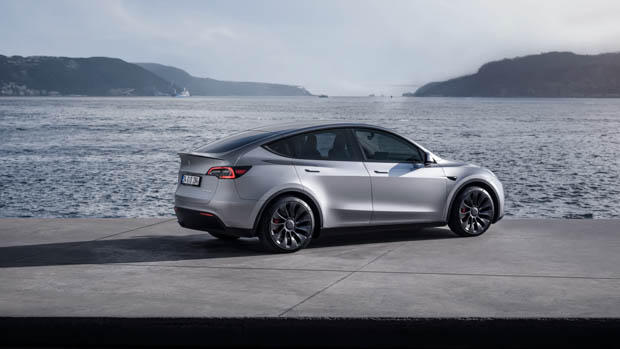-
Car Reviews
- Car News
-
Car Comparisons
Latest comparisons
- Chasing Deals
It’s the next installment of our Chasing Cars spec battle, and we size up Ford’s new Mustang Mach-E against price-busting RWD versions of popular electric SUVs
All-electric SUVs are becoming more and more common on Australian roads. And Ford Australia will soon bring its all-electric Mustang Mach-E to local shores to join a range of other SUVs with electric power.
There is no better time than now to compare the new Mustang Mach-E with some of its closest rivals. In this latest spec battle, Chasing Cars has pitted four rear-drive electric SUVs against each other to see which comes out on top on the spec sheet.
For this exercise, we’ll look at the following base model variants:
Let’s get stuck in!
Starting with the upcoming Mustang Mach-E Select, pricing will start from $79,990 before on-road costs, however the highest-spec all-paw GT will cost $107,665 before on-road costs.
Next up is the Tesla Model Y RWD which is priced from $65,400 before on-road costs . The flagship all-wheel-drive Performance costs $91,400 before on-road costs.
The Kia EV6 Air RWD, meanwhile, is priced from $72,590 before on-road costs, while its much more expensive dual-motor EV6 GT performance flagship costs $99,590 before on-road costs.
Lastly, the Hyundai Ioniq 5 in rear-drive Dynamiq guise currently costs $72,000 before on-road costs, while its high-spec AWD cousin will cost buyers $84,981 before on-road costs.
This means that the Ford Mustang Mach-E is the most expensive of this EV group by some margin.
The Ford Mustang Mach-E in standard Select guise includes the following features as standard:
Next up is the Tesla Model Y, which in base guise features the following:
The Kia EV6 Air follows along with the following standard specification:
And finally, the Hyundai Ioniq 5 Dynamiq has the following features as standard:
In terms of specifications, each vehicle seems to be pretty equally weighted in terms of standard kit.
Ford has stated that the Mustang Mach-E Select will have a WLTP range of 470km and will be fitted with a 71kWh battery pack.
Tesla states that its entry-level Model Y rear-wheel drive has a 455km WLTP range and uses a 57.5kWh usable battery pack.
The Kia EV6 Air RWD has a claimed 528km of WLTP range thanks to a 77.4kWh battery pack.
Finally, the Hyundai Ioniq 5 Dynamiq uses the same 77.4kWh battery pack as the Kia EV6, which provides a claimed 507km (WLTP) range.
So, it’s the EV6 Air that comes out on top as the entry-level electric SUV with the best claimed range at 528km. However, it must be noted that these are claimed figures only and not real-world figures.
If you want to be the master of traffic light acceleration runs, then check out the 0-100km/h times for each of the SUVs down below:
Ford Mustang Mach-E Select – 6.6 seconds
Tesla Model Y RWD – 6.9 seconds
Kia EV6 Air – 7.3 seconds
Hyundai Ioniq 5 Dynamiq – 7.3 seconds
The Mustang Mach-E takes the cake with the fastest claimed 0-100km/h time, however the rest of the pack won’t be too far behind. As with range data above, these are claimed figures.
Buying a full-electric SUV in 2023 means that you will get a well-specified vehicle for your financial investment.
The South Korean Hyundai Ioniq 5 and Kia EV6 make for pretty good value with great electric range and plenty of standard equipment. The Tesla Model Y, however, offers a lot for the least amount of money at $65,400 before on-road costs.
It’s not hard to see how the Tesla Model Y has become such a big seller on Australian shores.
After all, it’s currently the best-selling electric car locally.
The electric Ford Mustang Mach-E is set to arrive in Australia during the fourth quarter of 2023.
Latest news
About Chasing cars
Chasing Cars reviews are 100% independent.
Because we are powered by Budget Direct Insurance, we don’t receive advertising or sales revenue from car manufacturers.
We’re truly independent – giving you Australia’s best car reviews.
